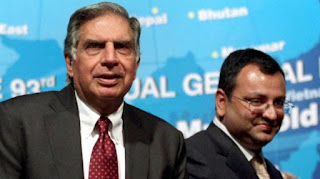BAREILLY: Manish Gupta, 33, a software developer based out of Lucknow, has been pestered by calls from real estate agents. On the offer was a chance to invest black money in the business. "The offer was 60:40 on the deal. I then learnt that one lakh rupees, comprising Rs 1,000 and Rs 500 notes, will be equivalent to Rs 60,000 in the deal," said Gupta.
Customers are getting similar deals in other cities of the state including Allahabad, Lucknow, Ghaziabad and Noida in varying degrees of commissions ranging from 30% to 50%. A developer on condition of anonymity claimed that customers are also approaching them with offers to invest their black money.
This is ironic, compared to the initial lull in the real estate market in the aftermath of demonetisation. Developers, who were initially troubled by the announcement of scrapping of currency notes which account for nearly 86% of cash in circulation, have discovered loopholes sooner than expected.
There are many small and big developers who have their projects operational in all major cities of the state. Experts say that the demonetization might delay projects, which has sent developers, especially the small ones, into panic mode.
Speaking to TOI, a chartered accountant based in Varanasi said, "I have heard about real estate agents charging commissions ranging between 30% and 50% in such cases. But this is a vicious network. The person at the end of the chain is bound to land in trouble."
Sources close to TOI revealed that these agents have managed a network of close to 100-150 bank accounts and will use it to deposit the money in smaller amounts.
Customers are getting similar deals in other cities of the state including Allahabad, Lucknow, Ghaziabad and Noida in varying degrees of commissions ranging from 30% to 50%. A developer on condition of anonymity claimed that customers are also approaching them with offers to invest their black money.
This is ironic, compared to the initial lull in the real estate market in the aftermath of demonetisation. Developers, who were initially troubled by the announcement of scrapping of currency notes which account for nearly 86% of cash in circulation, have discovered loopholes sooner than expected.
There are many small and big developers who have their projects operational in all major cities of the state. Experts say that the demonetization might delay projects, which has sent developers, especially the small ones, into panic mode.
Speaking to TOI, a chartered accountant based in Varanasi said, "I have heard about real estate agents charging commissions ranging between 30% and 50% in such cases. But this is a vicious network. The person at the end of the chain is bound to land in trouble."
Sources close to TOI revealed that these agents have managed a network of close to 100-150 bank accounts and will use it to deposit the money in smaller amounts.











